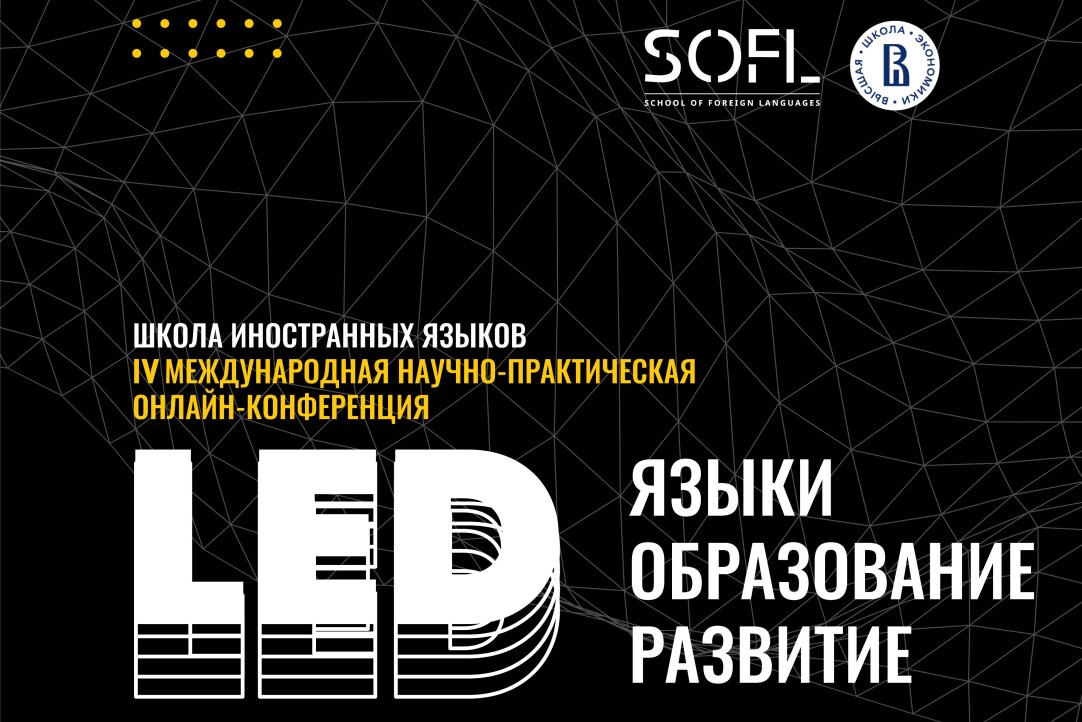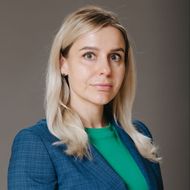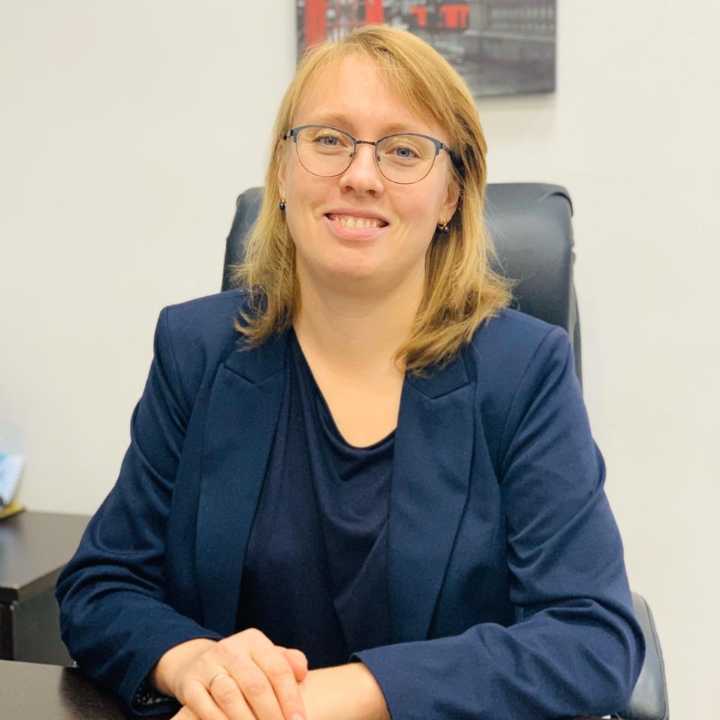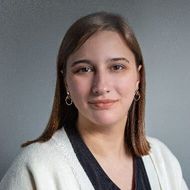‘Language Education Holds Lasting Value’

On December 5–6, HSE University hosted the 4th HSE LED Conference: Languages, Education, Development organised by their School of Foreign Languages. The conference was held in an online format and was dedicated to current trends in the development of modern linguistic and pedagogical knowledge. Over two days, more than 1,200 people took part.
The conference participants represented various regions of the Russian Federation, as well as seven foreign countries, including China, Brazil, and Spain. These participants work not only in universities, but also in the system of general, secondary vocational and further education, in educational book publishing, etc.
As in previous years, the conference agenda was determined by three key areas: languages, education, and development. However, this time, more attention was paid to methodological solutions using AI tools to assess the level of foreign language proficiency, as well as to the theory and practice of teaching Russian as a foreign language.
The opening event of the conference was a plenary session involving Russian and foreign scholars, moderated by Ekaterina Kolesnikova, Head of the School of Foreign Languages, HSE University.
Rafael Guzman Tirado, Doctor of Philology from the University of Granada (Spain), spoke about a Russian language textbook written in this university. The book’s content is based on the cultural and historical dialogue between Russia and Spain (for example, it mentions Agustin de Betancourt, an organiser of the transport system in the Russian Empire), as well as the analysis of Spain's image in Russian literature.
The presentation by Adolfo Tanzi Neto, Professor at the Federal University of Rio de Janeiro, focused on linguistic mobility. In particular, he noted that foreign language teaching should not be done in the mother tongue, and language skill development should be closely linked to the use of knowledge and experience from different fields.
Pan Ji, Professor at Fudan University in Shanghai, highlighted that the boom in intelligent digital technology poses a serious threat to language teaching, with AI largely replacing translators. However, according to the Chinese professor, learning languages is still necessary for effective communication, as well as for the further development of AI technologies.
Svetlana Bogolepova, Associate Professor at the School of Foreign Languages of HSE University and Academic Supervisor of the Bachelor's programme in Foreign Languages and Intercultural Communication, explained how AI technologies are taught to students within this programme. For example, teachers explain how to critically evaluate information generated by AI, how to create redundant prompts, and how to use AI to solve professional tasks.
More than 140 online events, presentations, workshops, and showcases took place at the two-day conference.
One of the round tables, organised together with the Prosveshchenie publishing house, focused on foreign language teaching within secondary vocational education. Given the shorter learning periods and emphasis on acquiring workplace skills, experts suggested that vocationally oriented materials should be used more actively in the learning process, and that interdisciplinary connections should be developed. This is where materials of the ‘Language. Profile. Career’ series will come in handy.
Another round table discussion was centred around educational innovations of modern Russian schools in such areas as achieving educational results, diagnostics and control, as well as methodological support and interaction of foreign language teachers within the framework of regional professional associations.
The discussion was moderated by Diana Popova, Head of the Centre for Educational Technology Development, School of Foreign Languages, HSE University. Teachers and methodologists from Kurgan, Kursk, and Orel Oblasts, as well as the Republic of Tatarstan and other regions shared their experiences and innovations in local language education.
Another round table was focused on modern approaches to teaching and promoting Russian language and culture globally. It was moderated by Alina Budnikova, Head of the Centre for Second Foreign Languages, School of Foreign Languages, HSE University. She spoke about the experience of teaching Russian as a foreign language at HSE University. This year, more than 2,200 foreign students enrolled, all of whom took a Russian entrance test and were placed in groups of an appropriate level.
The best teaching practices of HSE University were presented at various events of the conference. For example, Olga Kolykhalova, Professor at the School of Foreign Languages, HSE University, spoke about the role of literature as an important tool in foreign language teaching—she presented the works studied and examples of creative tasks designed to develop all aspects of language skills in students. Anna Popova, guest lecturer at the School of Foreign Languages, HSE University, spoke about the use of AI tools in teaching Academic Writing in English.
As in previous years, one of the key events of the conference was an expert interview. This year, the speaker was Ekaterina Kolesnikova. ‘Language education holds lasting value, because languages help us to understand the world and each other. Knowledge of foreign languages is an important factor of success in any profession,’ stated Head of the School of Foreign Languages of HSE University.
She informed the audience that, of the ten foreign languages taught at the School of Foreign Languages of HSE University, Spanish and Chinese are the most popular, French is in third place, Turkish has recently been offered, and there are plans to teach Arabic. Applicants' parents often ask which language will give lead to the best career prospects, and the main advice is to choose with your head and heart, understanding that language study is a long game.
When asked about the changing role of teachers and the difficulties and challenges of the profession, Ekaterina Kolesnikova said that technologies are developing too fast: one needs time to identify them, master them and use them in the classroom. She also highlighted teamwork as another challenge: teachers should be more active in working with others, forming small groups and collaborating to achieve common goals. And, of course, one has to understand young people's aspirations, wishes, and desires in order to help them build their careers.
To conclude the interview, Ekaterina Kolesnikova advised the audience to keep their curiosity alive, take part in interesting discussions, and make sure to attend HSE LED Conference next year.
See also:
Real Tasks and Direct Interaction with Employers: HSE School of Foreign Languages Holds Poster Session
For the second time, the HSE School of Foreign Languages has held a defence of specialised projects developed by fourth-year students of the Bachelor’s Programme in Foreign Languages and Intercultural Communication. Representatives of major companies and organisations that support the school’s project activities gathered to evaluate the projects during a poster session.
‘This Important Day Will Be Written in the History of the School of Foreign Languages’
At the end of December, the HSE School of Foreign Languages held its first-ever defence of student projects with the participation of industry partners representing large companies and organisations. Third and fourth-year students of the Bachelor's Programme in Foreign Languages and Intercultural Communication presented their works to the members of the expert committee.
‘A Creative Event that Makes Us Happier’
Decemberfest is an annual festival for first-year students, teachers, and applicants of the HSE School of Foreign Languages. The school currently offers courses in nine foreign languages: German, Spanish, French, Italian, Chinese, Japanese, Dutch, Turkish, and Hebrew.
Foreign Language Specialists Share Insights from Teaching and Research Experience
On November 29–30, HSE University hosted the Third International Online Conference 'Languages, Education, Development' (HSE LED Conference). The conference was attended by more than a thousand participants, including researchers and teachers, methodologists, language education experts, administrators, and business representatives. They discussed the challenges of teaching and learning languages in today's world and presented their research findings.
Linguatest Comes to Khabarovsk
Linguatest,the recently launched Russian foreign-language certification testing system developed by HSE University specialists, continues to develop and expand its geographic scope. Test centres are currently open in Moscow and Nizhny Novgorod, and a new one is set to appear in Khabarovsk.
HSE University Launches Linguatest, a Domestic Foreign-Language Testing System
Linguatest is available in two versions: academic and business. It can be taken in person at dedicated centres or online in proctored sessions. Registration in now open for the first exam sessions in Moscow in December 2022.
'I Dreamed of Studying at HSE University'
Maria Belousova, an applicant from Uzbekistan, will become a first-year student at HSE University in autumn 2021. She will study at the HSE University Moscow campus in the School of Foreign Languages. The News Service asked Maria why she chose HSE University, why she was interested in her chosen educational programme and how difficult it was to apply for University remotely.
HSE University Teaches Languages As a System, an Instrument of Communication, And As a Reflection of Culture
The Bachelor’s programme in Foreign Languages and Intercultural Communications, offered by the HSE Faculty of Humanities, is popular not only with Russian and international applicants alike. The programme helps students develop a broad outlook, as well as their communicative and analytical skills. The curriculum focuses on language teaching, translation and interpreting, intercultural business communication, and text creation. In an interview with HSE News Service, two international students talk about what attracted them to the programme and what they like about their studies, HSE University, and Moscow.
Foreign Languages That You Can Learn at HSE University
Improve your German, learn Chinese from scratch, or dive into business English – these are just some of the options offered by the HSE School of Foreign Languages’ Centre for Language and Methodology Training. HSE News Service talked to Tatyana Baranovskaya, Head of the Centre, and Ekaterina Kolesnikova, Head of the School of Foreign Languages, about their new programmes and the centre’s goals.
HSE Student Wins 2015 Labcitoyen French competition!
Tatiana Shakhova, a third-year student in HSE’s Faculty of World Economy and International Affairs, has won the 2015 Labcitoyen competition. This year’s Labcitoyen competition was carried out by the Institut Français (Paris) and the Institut Français of Russia as part of preparation for the United Nations Climate Change Conference, or COP21, scheduled to take place in Paris in November and December 2015. The grand prize was a trip to Paris to attend the conference.





